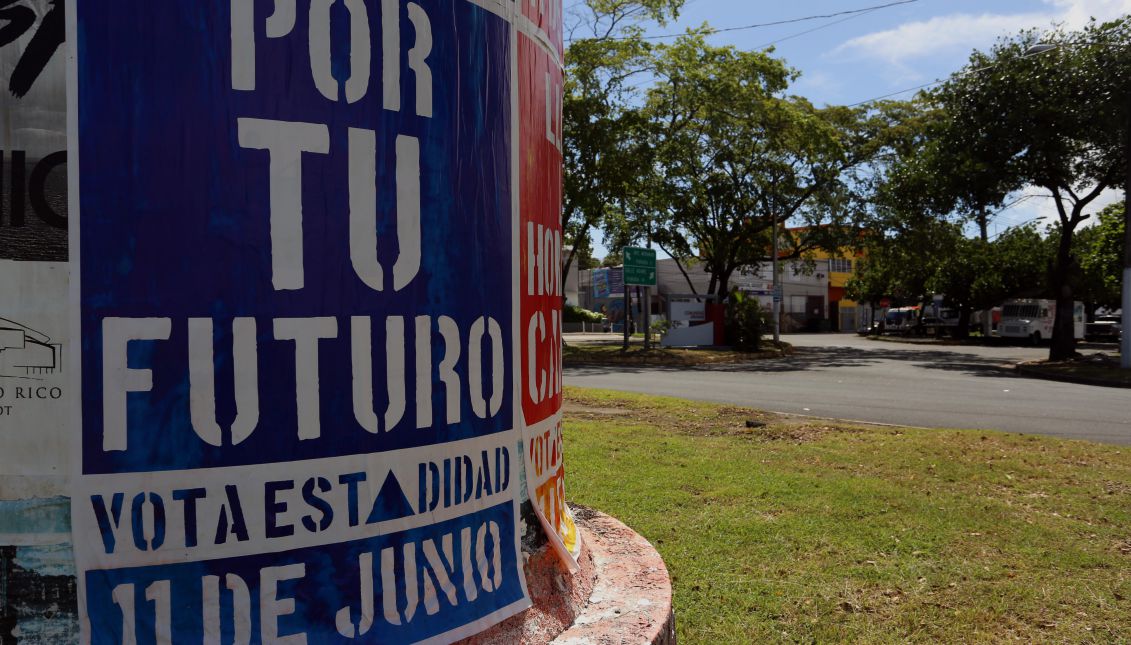
In low-turnout referendum, Puerto Rico opts for statehood
With 97 percent of the vote counted, a total of 97.17 percent of the Puerto Ricans who turned out to vote in Sunday's plebiscite on the island's legal status opted for US statehood.
According to figures released on the State Election Commission Web site, a total of 476,635 people voted for statehood for the US commonwealth.
Just 1.5 percent of the votes cast were for independence for the Caribbean island, and just 1.3 percent of those who cast valid ballots opted for maintaining Puerto Rico's current status as a US commonwealth.
Of a total of 2,260,804 registered voters, less than half a million went to the polls in the non-binding referendum.
As soon as these results were announced, the president of the island's main opposition PPD party, Hector Ferrer, said the results were far from a big victory for statehood and - in fact - constitute a defeat for Gov. Ricardo Rossello, who had supported the statehood option and declared that it would win.
Despite the fact that the statehood option won overwhelmingly among those who voted, eight of every 10 voters stayed away from the polls, Ferrer said.
"They went out on the streets, to the beach, to the river. They didn't pay any attention. Statehood and Rossello lost. They don't have the majority," said Ferrer at a press conference.
CONTENIDO RELACIONADO
The campaign director and vice president of the governing PNP party, Thomas Rivera Schatz, meanwhile, defended the statehood win and downplayed the significance of the loss of votes the option received relative to the November 2012 plebiscite on the same subject.
On that occasion, statehood was selected by more than 800,000 voters, and Rivera Schatz said that the loss in votes this time around was due to the emigration of Puerto Ricans to the US mainland.
Rossello, meanwhile, said after the results became known that the "historic" triumph of the statehood option is a call "to put an end to the colonial relationship with the United States" and is a "clear and strong message" to the world and the US Congress, which must approve any admission of Puerto Rico into the Union, that Puerto Ricans want US statehood.
The referendum transpired without any major incidents except for the burning of US flags by independence activists in front of the Election Commission HQ in San Juan after the polls closed and complaints of irregularities at some polling places that authorities called irrelevant to the final outcome.
Most of the polling places opened on time at 8 am, although a few experienced technical problems that caused them to open their doors a little late. The precincts closed at 3 pm.
This is the fifth political status referendum held in Puerto Rico in the past 50 years.










DEJE UN COMENTARIO:
¡Únete a la discusión! Deja un comentario.